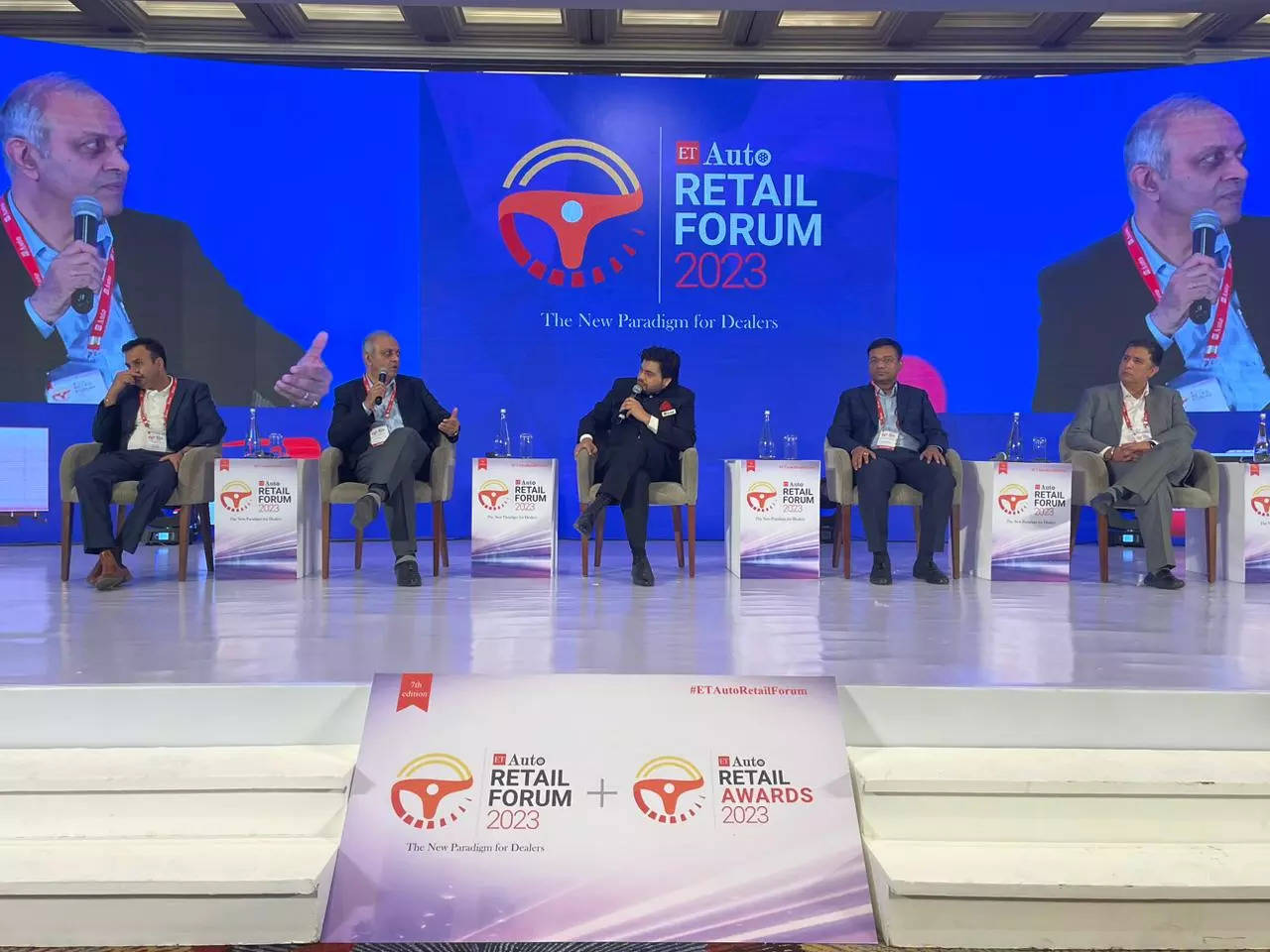
In an in-depth panel discussion in the 7th edition of ETAuto Retail Forum, industry leaders talk about the latest trends, changes and best practices for meeting customer demands and driving business growth.
Sanjay Gopalakrishnan, Head Electric Passenger Vehicle, BYD, said, “We are the first company to sell electric vehicles in India. We started when it felt like it had been an interesting journey because we had a lot of dealers and authority callers who were traditionally selling ICs. However, they are now selling out of separate showrooms and only selling electric vehicles. So I think the mindset has to change because they’re only going to sell electric vehicles. They’re making long-term stock a short-term business because there is no service attached to it as we get in ICE engines.”
“So I think three or four paradigm shifts are happening at the dealership level. First is the mindset that it is concept selling, that you have to sell a concept rather than a product, and you have to be in the business for the long term because EV is a long-term business, not a short-term business. And the next thing is that the salespeople and sometimes the technical people in the dealership have to be oriented towards selling an electric vehicle, especially on the service side. Even though people don’t come in for service regularly, there are a lot of questions that customers keep asking after they buy your vehicle. So, we have made sure that there is specific technical and specialized advice at the dealership,” he added.
Saurabh Kedia, Director and Dealer Principal, Shree Automotive, said, “I think there are two segments that we need to understand. One is mass transit. So you have the buses, which will have a larger impact as far as electric mobility goes. But in the car segment, I think today’s customers are a lot more aware and a lot more ready for the change. It is only a question that today, most of the people I am interacting with believe that in the next couple of years, a large number of products will enter the market and that they will have a wide range of options, just as they do now in ICE.”
He further added, “So they would like to wait for that choice once it comes. Today, consumers are ready to make the shift. It is only a question of getting the right mix. The right product strategy or the right pricing point you can provide with the right features that I think customers are ready to do.”
Saral Talwar, Co Founder and Direct Sales, Bikewo, said “You know multi brand is something that is very new for India. When it started initially there was a lot of resistance from most of the top brands when it came to multi brand because earlier or multi brand was considered a sub dealer. But if you see the number of players that have come today especially three wheelers, maybe not four wheelers and buses not yet, but two wheelers is pretty mature now. They are for the 300 400 players in India, out of which about 200-300 are importers. But if you ask anybody, they will only know three or four names that come to mind like Ola, Ather and Hero.”
“So, it is going to be very important for the person for any dealer, it is going to be impossible to make money by an individual brand, because no one brand is able to give complete range to the dealer.”
“So, today as a dealer, if you take any one brand, there is no guarantee that the brand is going to continue supply, there is no guarantee that the brand will just give you all the models, there is no guarantee that the brand will have enough money to pump in new models and new development. So, if with a multi brand, at least all these options are taken away. So that always something new is available to the dealer to sell and he will always have a choice,” he further added.